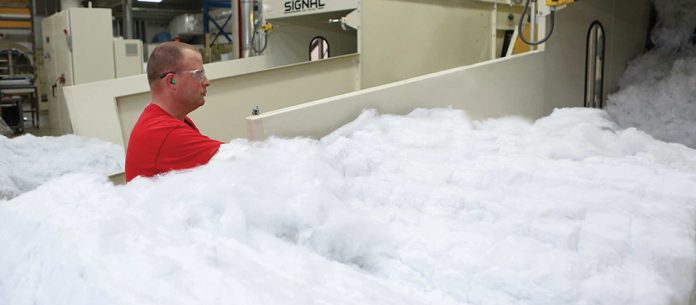Applied Felts’ has been at the forefront of research and development in the world of CIPP liners, revolutionizing a wide spectrum of new solutions, all created to meet unique requirements and address the proven acceptance of CIPP as a viable way to extend the life of a pipe without digging or causing significant disruption to communities.
We understand that choosing the right lining material for a cured-in-place pipe (CIPP) rehabilitation project is never an “off the shelf” decision. Applied Felts’ has an unparalleled commitment to understanding the unique field application requirements of CIPP installers, exploring and developing innovations to meet those needs.
Since rehabilitation projects are so diverse, each job must be evaluated individually before deciding which lining solution will best suit a particular project.
Key elements to consider to determine the best CIPP solution for your project
1. What are the unique characteristics of the job?
What are the variables, e.g., geographic location, time of year (outside temperature).
2. Which system and raw materials are being used to install the liner?
Take into consideration availability and location of a wet-out facility, capabilities of the installation equipment, quality of resin and other materials, which are equally important to evaluate prior to selection.
3. Know your options.
Based on your unique needs, steps and materials used in the manufacturing process can be varied. For example, choosing the right polymer coating, which is crucial for the resin system as well as installation and curing methods. How will the liner be closed. Flame-bonded, sewn or perhaps a High Frequency welded Cal hose might need to be used in open-end (or blind shot) liners as well as pull-in-place applications.
4. Does the liner manufacturer have a quality QA/QC program?
During the manufacturing process it is imperative that liners are stress-tested every step of the way. Characteristics such as density, thickness, fiber distribution/evenness, strength and weld-ability should all be continually evaluated. No pinholes should be present, which is ensured by monitoring coating uniformity, mass and weight distribution. Liners should be destructively tested for density at various pressures, tensile strength, coating distribution and more. Samples of the final product should be taken and tested once again for accuracy in circumference, density, length, coating integrity, weld strengths, and other properties that you specify.
5. Does the liner manufacturer stand behind its product?
Applied Felts’ does! We provide direct and ongoing support from determining the best raw materials, managing the manufacturing of the product, coordinating timely delivery, training your team and standing by to help you – day or night.
Bottom Line
Applied Felts’ continues the tradition of innovation with the development of fiberglass-reinforced liners for gravity sewer lines, as well as advancements in liners designed specifically for highly-demanding pressure pipe and potable water applications.
One example is Applied Felts’’ Sewn, PU-coated felt liners, that allow for more extreme environmental and procedure requirements while providing greater flexibility in the field.
The benefits of Applied Felts’ fiberglass-reinforced hybrid liners include a matrix that reduces the thickness of liners, delivering significant resin savings and, therefore, overall lower material costs. These liners typically weigh less, making transportation, handling and installation faster and easier. Our liners stretch up to 10 percent to the existing pipe wall, ensuring a close fit with faster impregnation rates and reduced installation times.
In addition, they provide excellent chemical resistance against sewer effluent elements and superior physical and mechanical properties when tested.
Purchasing lining materials is a huge responsibility, and one you should not take lightly. At Applied Felts’ we always encourage users to visit our manufacturing facility to see first-hand the intricacies involved in producing quality liners to deliver a custom solution that will stand the test of time, every time.
For more information:
Castle Bank Mills, Portobello Road, Wakefield, West Yorkshire WF1 5PS
+ 44 (0)1924 200535
www.appliedfelts.com




